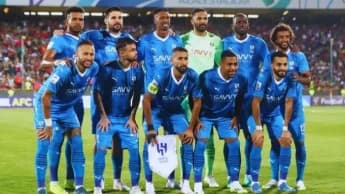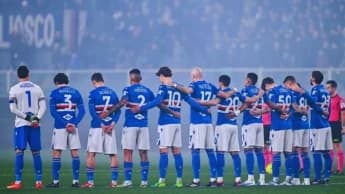Chivas: A Legacy of Passion and Pride in Mexican Football

Club Deportivo Guadalajara, known as Chivas, embodies the spirit of Mexican football with its passionate fans, successful youth academy, and rich history in both domestic and international competitions.
Club Deportivo Guadalajara, widely referred to as Chivas, stands as one of the most renowned football clubs in Mexico, boasting a rich and illustrious history that dates back to its establishment in 1906. Located in Guadalajara, Jalisco, the club represents not just the locality but also embodies the culture and fervor of Mexican soccer. Chivas is celebrated for its strict policy of fielding only Mexican players, a principle that has defined the club's identity and secured it a special place in the hearts of its fans. Throughout the years, the club has become a symbol of excellence in Mexican football, accompanied by a strong sense of national pride linked to its avoidance of foreign players.
Referred to as El Rebaño Sagrado (The Sacred Flock), Chivas has built one of the most devoted and enthusiastic fanbases in Mexico. The supporters, known as Chivahermanos, generate a vibrant atmosphere at every match, whether held at their home ground, Estadio Akron, or during away games. Additionally, the club's youth academy has gained recognition as one of the most prestigious in Latin America, developing elite talent that frequently advances to play for both the club and the Mexican national team.
The culture of the team is centered around family values, national pride, and engagement with the community. Chivas transcends being merely a football club; it serves as an institution that brings together families, neighborhoods, and communities throughout the country. This profound bond with the community has established Chivas as one of the most cherished football clubs in both Mexico and Latin America.
Accomplishments of the Team
Chivas boasts a remarkable history characterized by achievements on both national and international stages. Among their most notable successes are:
The achievements of Chivas extend beyond just winning trophies. The club's dedication to cultivating and developing homegrown talent has solidified its stature in Mexican football. Players such as Javier Hernández (Chicharito), Carlos Vela, Jorge Vergara, and José Juan Macías have all risen through Chivas’ youth academy and subsequently represented both the club and the Mexican national team, highlighting the significance of their development initiatives.
Strengths and Weaknesses
One of the most significant strengths of Chivas is its youth academy, which has cultivated some of the top Mexican footballers in recent times. The club takes pride in its Mexican-only policy, fostering the growth of homegrown talent that is essential not only for the team's success but also for the Mexican national team. Notable players such as Guillermo Ochoa, Carlos Vela, and Javier Hernández began their careers at Chivas, reinforcing the club’s reputation as a fertile ground for developing young talent. Chivas also exhibits a strong team spirit, frequently recognized as one of the most cohesive squads in the league.
The bond and shared intention among the players stem from the club's commitment to fielding exclusively Mexican athletes, who uphold similar cultural and national values. This solidarity often results in strong on-field chemistry, as players are inclined to support each other and honor the club’s heritage. The fans, referred to as Chivahermanos, are among the most devoted and enthusiastic in Mexican football. Their steadfast support fosters an electrifying atmosphere at Estadio Akron and during away games, often giving the team the morale boost necessary for achieving victories.
Chivas' commitment to exclusively fielding Mexican players forms a fundamental part of the club's identity; however, it also presents a challenge regarding competitiveness. The absence of foreign players sometimes makes it difficult for the club to attract elite talent that could offer a competitive advantage, particularly in international tournaments like the Copa Libertadores and CONCACAF Champions League. In recent years, Chivas has faced difficulties in achieving consistent performance. While the team has had flashes of brilliance, it often struggles under pressure, especially during the Liguilla (playoffs). This inconsistency has occasionally resulted in early postseason exits, leaving fans somewhat disappointed despite the team’s evident potential.
Chivas frequently experiences substantial pressure during crucial matches, particularly in the Clásico Nacional and playoff scenarios. Although they have stepped up in important moments multiple times, their struggle to deliver consistent performances in high-pressure situations continues to be a weakness.
Tactics and Style of Play
The playing style of Chivas has transformed throughout the years, yet it remains fundamentally centered on attacking football and a possession-based approach. The team emphasizes retaining control of the ball, initiating attacks from the defensive line, and employing rapid, accurate passes to dismantle opposing defenses.
The team strongly focuses on wing play, leveraging the speed and creativity of their wingers to exploit the opponent’s defense. The wide players are encouraged to either cut inside for goal attempts or deliver crosses for the forwards. Additionally, Chivas implements a high pressing strategy, where the players collectively strive to regain possession rapidly after losing the ball. This approach has enabled the club to sustain a dynamic and aggressive tempo throughout their matches.
Although Chivas is generally recognized for their offensive strength, they are equally adept at maintaining a solid defensive structure. The central defenders are vital in upholding the team's organization and safeguarding the goalkeeper. Additionally, Chivas emphasizes counter-attacking, utilizing the speed of their forwards and wingers to take advantage of any gaps left by the opposing defenders following a turnover.
Chivas' tactical approach typically showcases a balance between offensive and defensive play, with midfielders playing a vital role in safeguarding the defense while also facilitating connections with the forwards. Key creative playmakers are crucial for Chivas, as they bring the vision and passing precision needed to penetrate tightly organized defenses.
Memorable Matches
A number of matches have played a significant role in shaping the legacy of Chivas and establishing its position in the history of Mexican football:
Future Outlook
Chivas is strategizing for future achievements. By prioritizing the development of young players, the club seeks to create a squad that is not only competitive in Mexico but also on the international stage. The emergence of talents such as José Juan Macías, Alexis Vega, and Fernando Beltrán provides Chivas with optimism for a promising future, as these rising stars are anticipated to lead the team in the coming years.
Emphasis on Youth: Continuing to prioritize youth development is a fundamental aspect of Chivas' approach. By upholding their legacy of nurturing local talent, the club will consistently offer pathways for young players to contribute to the first team. Incorporating youth into the roster ensures long-term viability and helps maintain the club's distinct identity.
International Aspirations: Although Chivas has found success in domestic tournaments, the club is focused on assembling a team that can secure international championships. Investing in the enhancement of the squad's depth, especially in crucial roles, will be essential for Chivas to achieve ongoing success in the Copa Libertadores and the CONCACAF Champions League.






